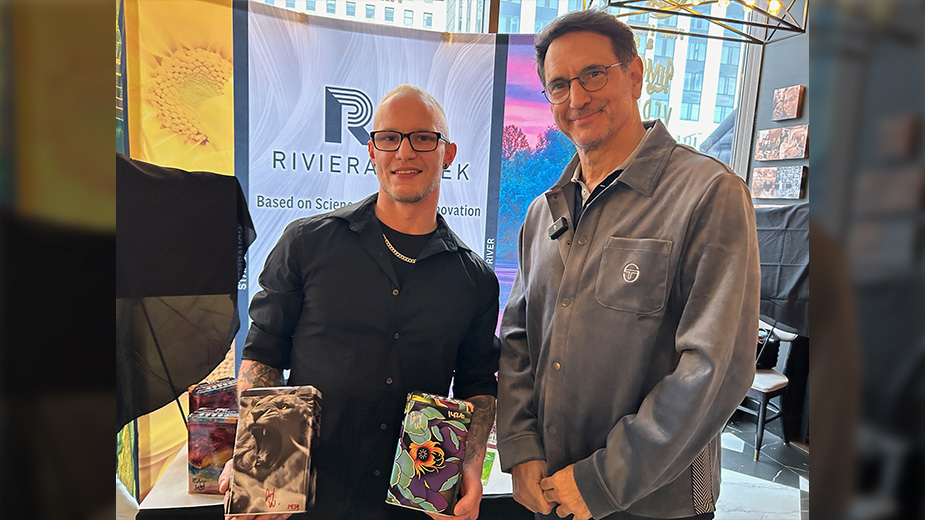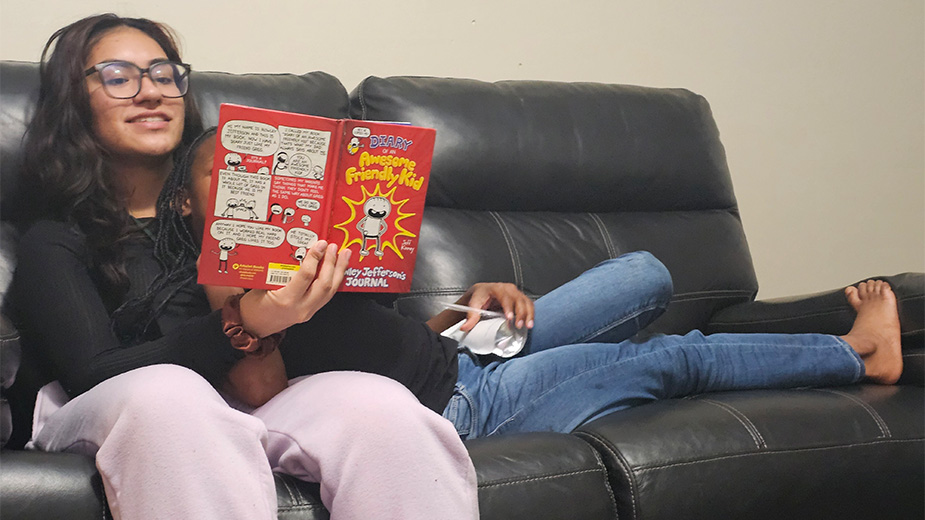Phoenix Corrugated Emerges from ‘Ashes’ of Sebring Container
SALEM, Ohio – Monday was one of those joyous days that will remain in Amy McDevitt Cannon’s memory.
Surrounded by family and a host of well-wishers inside her factory, Phoenix Corrugated Container LLC – with Lt. Gov. Mary Taylor standing next to her — Cannon cut a broad red ribbon with a pair of oversized scissors to celebrate how far her company has traveled, from concept to reality, in less than a year.
They stood in front of a McKinley rotary die parts machine that produces the many shapes the sheets of corrugated cardboard become.
On hand were the president of the Columbiana County commissioners, Tim Weigle; Jason Wilson, Gov. John R. Kasich’s director of the Ohio Office of Appalachia; Audrey Null, executive director of the Salem Area Chamber of Commerce (and a contingent of chamber ambassadors, all wearing red blazers); Mike Mancuso, executive director of the Salem Sustainable Opportunity Development Center, and Howard Rohleder, its president; and state Sen. Joe Schiavoni, D-33 Boardman.
But the day was Cannon’s as she, Rohleder, Null and Taylor recounted how Cannon went from unhappy sales representative to entrepreneur.
Born to Bill and Cheryl McDevitt 40 years ago and reared in Salem, Amy spent her summer vacations on the floor of her father’s cardboard carton plant, Sebring Container Corp., while attending Salem High School.
Planning to be a research biologist, she went to the University of Mount Union but continued to work summers in her father’s plant on Benton Road. There “I did everything, from data entry to working on the floor,” she recalled.
She saw how Bill McDevitt worked with his customers and took that to heart. “I watched my dad treat people well,” Cannon said. “No order was too small for him to fill.”
After earning her baccalaureate, Cannon discovered she would rather work as a sales rep for her father than pursue graduate work in biological research.
Health issues forced Bill McDevitt to close his business four years ago and Cannon went to work for the company that acquired her as a sales rep and her customers, she said.
It did business differently than Sebring Container. For example, where Bill McDevitt accepted all orders regardless of size, the acquirer was interested only in larger orders, Cannon said, and little interested in filling special orders.
A year ago, she approached Larry Kasibo, who’s since retired as executive director of the Salem Sustained Opportunity Development Center. Cannon credits Kasibo with helping her write a business plan, secure financing, find a plant in Salem Industrial Park, buy a delivery truck and get her business up and running, including prospecting for customers.
Phoenix Corrugated, in business in its 12,000-square-foot building since February, today has four employees, including Cannon and the truck driver. The owner/president plans to hire another six by next April, she said.
Mike Mancuso, executive director of the Sustainable Opportunity Center, noted his agency won’t end its support of Phoenix now that it’s open. It will remain involved, he promised.
Along with the Sustainable Opportunity Center, helping Cannon launch her business are the Columbiana County Community Improvement Corp., Mahoning Valley Economic Development Corp., Huntington Bank, and the U.S. Small Business Administration.
Financing Phoenix Corrugated is Huntington Bank with an SBA loan guarantee, MVEDC, the Sustainable Opportunity Center, and four private investors Cannon declined to identify.
The company owner intends for her company’s market to remain Salem-centric. Its customers extend east into western Pennsylvania, north to Interstate 80, west to Massillon and Canton, and south to U.S. Route 30.
As with her father, no order will be too small to book. “I have customers who buy only 50 cartons at a time,” Cannon said.
She will visit – and has visited — customers in their businesses. At one, she recalled, using only a quarter, ruler and pencil, she designed samples of the cardboard containers the owner wanted to package and ship his products.
The four pieces of machinery on the Phoenix Corrugated work floor can add a company logo and bar codes to the cardboard shapes they turn out, Cannon says. She continues to use her computer to design the boxes customers order.
Much of the credit for Phoenix goes to Cannon’s parents, she said — her father, Bill, for building the model she follows, and her mother, Cheryl, for driving her son, Noah Cannon, 12, to school and school activities. It helps that her parents live only a mile from her, Cannon said.
Noah was on hand to hear the speakers praise his mother’s efforts and the long hours she devoted to developing Phoenix.
In her remarks, the lieutenant governor spoke briefly about her own background as a CPA and admitted, “I was never enthusiastic about owning my own business” before iterating her support of small businesses and citing measures the Kasich administration has asked the state Legislature to adopt, including tax breaks, that would benefit small-business owners.
“You have more courage than you’re probably given credit for,” Taylor told Cannon.
Taylor allowed, ”I’m biased because we have [in Phoenix] a woman-owned business,” quickly adding, “I want everyone to be successful.”
Then she took a couple of steps to Bill McDevitt, seated in a wheelchair, to take his hand and say, “We need Amy.”
Pictured: William and Cheryl McDevitt, Amy McDevitt-Cannon and Noah Cannon.
Copyright 2024 The Business Journal, Youngstown, Ohio.



